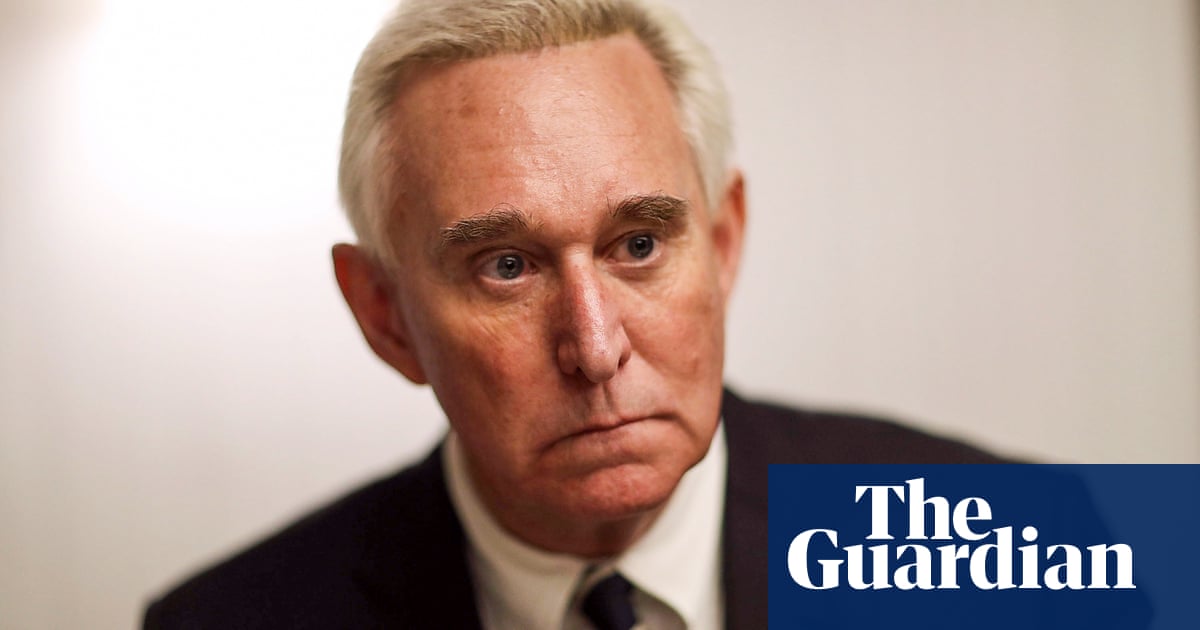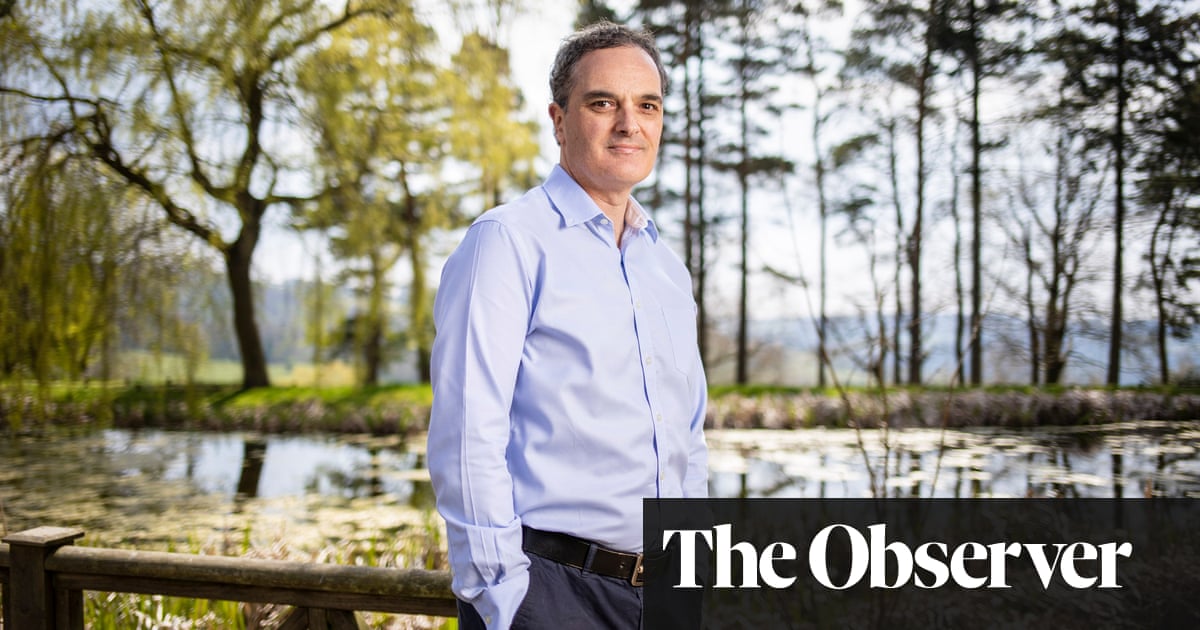
On 15 September 2011, a wounded Taliban insurgent was shot by a Marine, Al Blackman. That much is undisputed: later, at a court martial in 2013, Blackman would argue that he shot the man when he believed him already to be dead, but this was not credited and he was found guilty of murder, dismissed from the marines and sentenced to life imprisonment, to serve a minimum of 10 years. In 2017, he was released from prison, having successfully argued on appeal that a mental health condition known as an “adjustment disorder” had significantly impaired his rational decision making.
Blackman was the first British soldier to be convicted of a battlefield murder on foreign soil since the second world war. And in the Channel 4 documentary War and Justice: The Case of Marine A, one prosecuting lawyer still takes the view that “it was a murder, by an armed soldier, of somebody who was injured, who’d been dragged down in front of him, and was shot in cold blood”. Yet this story of his trial and eventual (partial) exoneration, directed by Stephen Bennett, told through the footage and testimony of anthropologist and film-maker Chris Terrill – who was embedded in Blackman’s unit – doesn’t even leave you with enough solid ground to know exactly what you think about murder.
Terrill, speaking over Zoom from his home in London, describes how he came to be embedded in Helmand province. Generally, a journalist has to be babysat on the frontline, they need six soldiers looking after them and it interrupts their connection to the unit, essentially because they’re a bit annoying. To sidestep this, Terrill trained as a Marine himself, 32 weeks of grindingly hard physical and mental toil, by the end of which, he says, “you are at the level of an Olympic athlete, both in terms of cardiovascular and upper body strength,” and you have the green beret’s “way of seeing: loyalty, unselfishness, determination and perhaps the most important, cheerfulness in the face of adversity”.
There was something in the training that other soldiers in the unit, along with Terrill himself – even though he remained a journalist and was never a combatant – all describe. “A form of love between us,” Terrill says. “I’ve never experienced it before. I did that brutal, gruelling training at 55, most of the people I was training with were in their early 20s, but they became lifelong friends.”
He’s not making a schmaltzy point about brotherhood, but rather a point about the impossibility of reacclimatising, once you’ve been torn out of the normal world and regrown in this petri dish of love and violence. “When we came back to Brize Norton,” Terrill remembers, “waiting for our families, our blood families, wives, children, mothers, fathers, the Marines would always hesitate because they had become the primary family themselves. They wanted one last man hug. When you go to war, you’re not actually fighting for Queen and country or for the Afghan government or for a flag, you’re fighting for the man on your left and the man on your right.”
When the argument was successfully made that Blackman was suffering from an adjustment disorder, one of its core elements was the emotional impact of this doomed comradeship. It’s something Terrill describes as: “When you see people that you love in that way, people that you know would die for you, as you would for them, when you see them killed or maimed, it goes very deep.” You cannot, in precis, see your best friend’s head blown off and think straight afterwards. “The signature casualty which people never talk about,” Terrill says, “is loss of genitalia. IEDs are not necessarily designed to kill you, they’re designed to maim you. Death is easier for the military to cope with.” The language we use to describe the knock-on effects – that soldiers “dehumanise” the enemy, “seek revenge”, lose control in their rage – lends itself quite easily to moral and legal adjudication; revenge is bad, dehumanisation is wrong. But the more this documentary digs into the reality of fighting, and what soldiers’ lives are like afterwards, the more insistently the idea emerges that the human brain is just too complicated for war.
Counterinsurgency warfare has specific aspects that are hard to make moral sense of, partly because they don’t make rational sense. The man Blackman killed was referred to at one point as a “$10 Taliban”, men who five minutes before were labourers, recruited by economic necessity or force. The terrain is so unnavigable it sounds like an anxiety dream. The Taliban weren’t even in uniform. “The rules of engagement that generally operated in Afghanistan,” Terrill says, “was something called Card Alpha, you can’t shoot until you’ve been shot at. It’s part of what’s broadly referred to as courageous restraint. It’s very difficult to apply in practice, because often if you restrain yourself courageously, you’re going to get shot.” All of which sounds like quite a circular apologia for Blackman’s actions, but that’s not really the case Terrill or the documentary are making; rather, we need to ask more searching questions about battle.
The military diagnosis we’re more familiar with, of course, is post-traumatic stress disorder, which Terrill has had treatment for in the past two years, thanks to several tours of Helmand, visits to war zones in Africa and covering famines as a journalist. Although we don’t always understand it quite as well as we might think. “There’s a form of PTSD people don’t know much about,” says Terrill. “It’s not the night terrors, being haunted by what you’ve seen and done. It’s that the adrenaline isn’t there any more. War is horrible but it’s bloody exciting. You can get addicted to the rush of combat.” The men who fought alongside Blackman, who were acquitted, describe lost, rootless lives afterwards, unable to see the point of either the time served or the aftermath.
Advertisement
This vexed coalition formed the people who joined Claire Blackman, Marine A’s wife, in fighting his appeal. As a result, it encompassed the best and worst of the ex-forces. “[There were] people who genuinely supported him and thought he’d been wronged, but also people who didn’t even think about the ethical implications,” says Terrill. “He just became a poster-boy for the right wing. He knew that, and he didn’t like it. That’s not what the Royal Marines that I knew would stand for.” Green berets, marching on Downing Street, tell the camera that it’s what any of them would have done. Soldiers told Terrill privately that the case of Marine A was isolated only in so far as it had been caught on film.
By the time he was released, Blackman had served four years, a model prisoner. “He’s a Marine: he’s neat, he’s tidy, he knows how to say ‘yes, sir, no, sir.’ They thought they might have to put him in isolation, to protect him from Muslim inmates, but he said no.” Though his conviction was reduced to manslaughter on grounds of diminished responsibility, Blackman remains dismissed from the Marines. Terrill takes the incredibly long view, that this dilemma has been around since Aristotle first noticed it, “basically, soldiers are human beings. They are civilians, they are citizens, they have frailties, they have vulnerabilities. We can’t see them as supermen. But because they’re invested with the right and the ability to kill, they have to have a greater moral character than the rest of us.” It’s only because we’re prepared, collectively, to make this unreasonable demand – be like us, only better – that we get to sleep in our beds at night.
Yet those timeless questions, can a soldier ever be moral enough, can a society ever be grateful enough, are particularly difficult when considered in today’s context. With another five years’ of perspective, we can see that Afghanistan itself has been brutalised, that this irreversible havoc written into the psyches of the combatants has no greater social good to show for itself.
“It’s interesting,” Terrill says, “my first venture into Afghanistan was on the hippy trail in 1969. I went into Helmand never thinking that so many years later, I would return to this place of peace and love and it would have become the killing fields, completely turned on its head.” He finds it “beyond frustrating” from a political perspective that by the mid 2010s, there were green shoots of development, it seemed as though hearts and minds had been won, and all that was torched by the premature withdrawal of troops. “Four-hundred and fifty-three British lives lost. And that’s just British lives.” There is a loud, unspoken “for nothing”.
If you look at the war through a geopolitical lens, you get sucked immediately into questions of strategy, tactics, expedience and competence. If you look at it through the case of Marine A, you get to different moral questions: fundamentally, I think, the better we understand the mind, the more impossible a concept a “just war” becomes.












